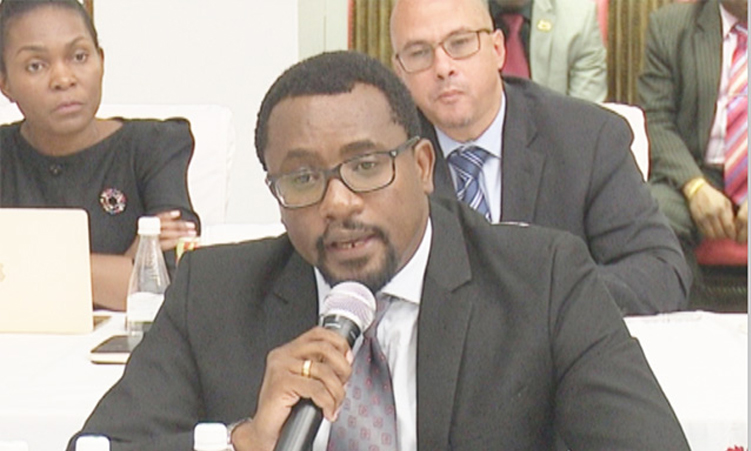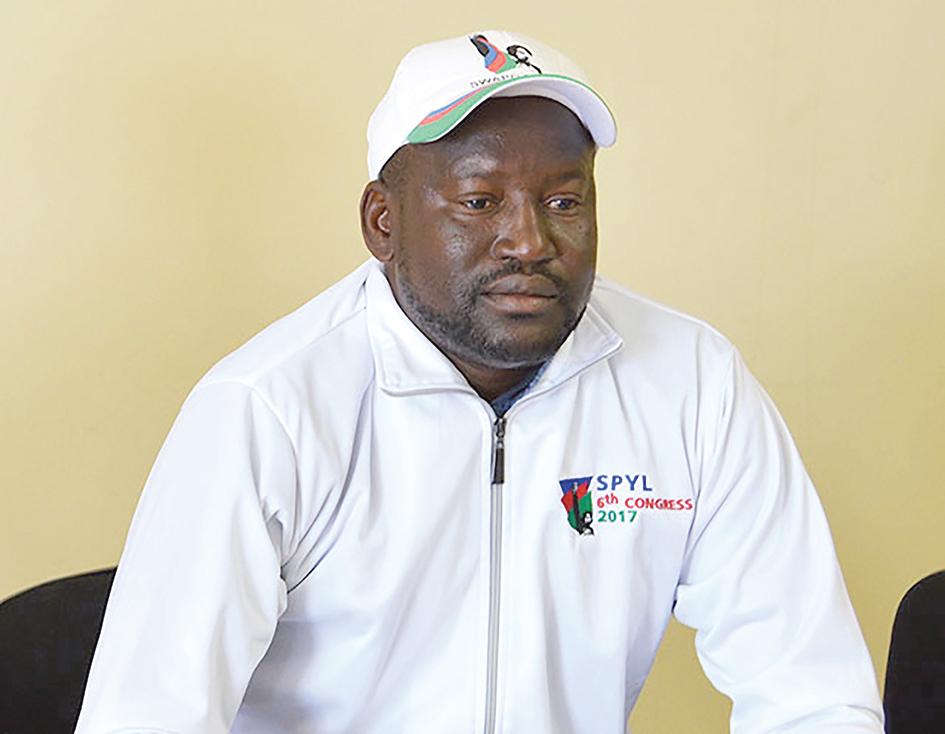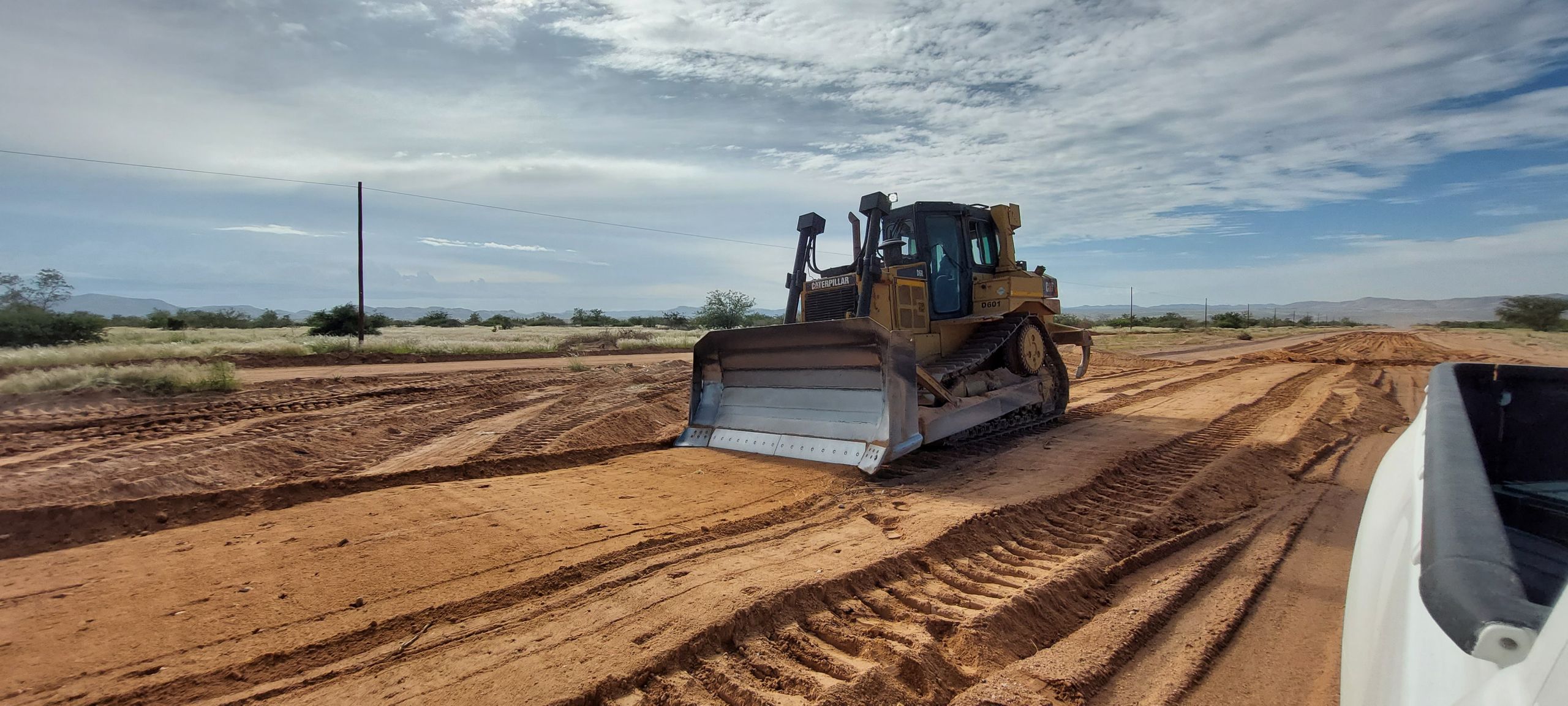The Chamber of Mines of Namibia has formally requested a meeting with the newly appointed deputy prime minister and minister of mines, energy and industry Natangwe Ithete, to discuss potential policy changes.
This comes after Ithete, who has served as a member of the parliamentary standing committee on public accounts, has hinted that he wants the state to increase its resource share ownership for natural resources from 10% to around 50%.
The state owns most of its stake in mining companies through Epangelo Mining Company, while the National Petroleum Corporation of Namibia holds stake for the state in the oil and gas industry.
Speaking to The Namibian yesterday, Chamber of Mines chief executive Veston Malango said he could not comment on earlier calls by Ithete to increase resource stakes in the mining industry.
In an earlier EagleFM report, Ithete was quoted saying that 3%, 10% and 15% in natural resources is peanuts.
“We want maybe a minimum 50% in all mines. If they do not want to, they must pack and leave. This thing of being fooled by foreigners or investors saying no, you don’t have the capacity, you don’t have the equipment, if that is the case we will not invest in your country. Then pack your things and go, and see if we will not find investors. We will find them,” he said.
Ithete did not answer calls or respond to messages sent to him yesterday.
Social justice activist Shaun Gariseb says Ithete must stand by his words, citing that many of the new breed are people that understand the plight of Namibians.
He notes that the minister will be judged on whether he is working on things he advocated, namely local beneficiation of local communities from the country’s natural resources.
“I’m hoping he does push forward for what he was advocating. We really trust in them. It gives us hope when they stand by what they advocated outside the office,” says Gariseb.
The social activist says Ithete must now stand by his call for a 50% minimum share.
Affirmative Repositioning’s Tuhafeni Petrus says Ithete must stand by his 50% share call when Namibia is negotiating its resources, citing that it is a good call, but he believes 50% is still not enough.
He says it still does not give Namibia control, adding that 50/50 still means the country cannot have control over its resources.
“We have been advocating this for a long time and it is pleasing to hear that. But now that he is the minister, we await to see what he will do to implement it. But 70% is a better deal in my view,” he says.
Petrus says he has previously worked in the mining sector and today he sees trucks of granite and marble being transported while the ministry last year announced that Namibia will no longer export raw materials.
He says this trend is concerning as it shows why Namibia needs to negotiate better deals, to have more control over its resources.
He adds that Namibians deserve better deals and beneficiation of resources which will allow the community to be the eyes and ears of the ministry to report illegal transportation of resources, particularly unprocessed minerals.
Petrus argues that since independence, Namibia still has contract mineworkers, a situation he describes as cumbersome and as a result of giving too much control to investors.
He also wants foreign permits to be relooked so that it creates space for a vocational training centre, thereby creating local jobs, and not look at a foreign pool.
Swapo member of parliament Tobie Aupindi says he supports Namibia negotiating better deals for its mineral resources in the best interest of Namibians. He also states that 50% should be put into context.
“Namibia must negotiate better deals and regulate a model of ownership in line with the interest of all Namibian people. I agree with the president. We are too few to be poor,” Aupindi says.
He says Namibia should stop negotiating from a position of weakness, especially those who negotiate on behalf of Namibians
He adds that it should be done in terms of beneficiation, and emphasises that value-addition goes beyond just shares. He says it also deals with the advanced technology needed and the transfer of skills.
Stay informed with The Namibian – your source for credible journalism. Get in-depth reporting and opinions for
only N$85 a month. Invest in journalism, invest in democracy –
Subscribe Now!










